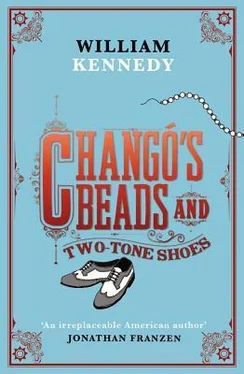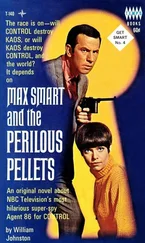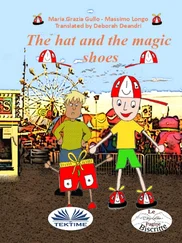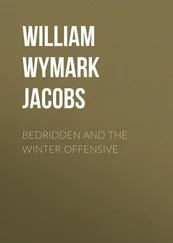
Quinn, waiting to see another hero of a latter-day revolution, moved in synch with Renata — no need to watch Floreal now, we know the moves — and, as he felt his and Renata’s spirits seriously mingling, he decided this was the corroborating stage of the wedding ceremony.
“It’s time to do the marriage,” he said to Moncho.
“We are still in the dance,” Moncho said.
“We’re getting past it. It seems time. Are you ready to marry me, Renata?”
She broke her trance to throw back her head and laugh, not inclined to stop dancing to be wed. She was in collusion with the chant and the drum, generating the movement of love. “I am getting close,” she said.
“Will you kiss me now?” Quinn said to her. And she danced toward him and took both his hands, then kissed him with a passion that seemed greater and more nervous than when they had last made love; and he decided this was yet another irreversible step toward the ceremony. Renata closed her eyes and danced away to the table. She picked up the red and white beads from Changó’s bowl and put them around Quinn’s neck.
The drumming and the singing stopped.
Floreal, with wide eyes, faced the table, picked up the coconut, and hit it with the hammer. She drained its milk into a dish, broke the coconut into pieces with her hands, and washed the four largest pieces in another dish of water. She threw the four pieces on the floor and stared at how they fell — the white of the meat or the brown of the outer shell facing upward. Ezequiel resumed his drumming, the same beat but slower. Floreal moved toward and then away from Renata and, circling the pieces of the coconut, began to talk to the room. “A woman alone in a room is knitting,” she said, “always knitting, and she knits because she is trying to save you.”
“It is my grandmother,” Renata said. “She did that for years. Is she saving me from marriage?”
“Nothing can save you from marriage,” Floreal said. Then she told Quinn that the Orisha wanted him to speak to Renata what he knows about love.
Quinn said there are fifty million definitions of love and its abortive and deadly and gorgeous and mystifying nature, and he knows quite a bit about it, but he never knew what it felt like before Renata, and that love for her is unbelievably great inside him, and growing, and intoxicating his soul. He said he believes its mystical power will conquer every doubt in Renata’s heart about the speed of this leap into marriage, and he rambled on, full of what he remembered others saying of love — love, the itch, and a cough cannot be hid, love conquers all things, to fear love is to fear life, love lodged in a woman’s breast is but a guest, will you love me in December as you do in May? And when he heard his own babble he stopped talking.
Then the drum resumed, and Floreal spoke of the handsome young Babalu Aye who had many women until he was struck with leprosy by Olodumare because of his disobedience — going with a woman on Holy Thursday, which was forbidden. The woman he went with awoke in his bed to see him covered with sores, and she fled. Babalu Aye went to the house of Olodumare and begged to be restored to what he had been, but Olodumare slammed the door and Babalu Aye died on the street. The women of the world wept and went to Oshun and asked her to help bring Babalu Aye back to life. Oshun was moved by their tears and went to Olodumare, who had been her lover years ago. She brought with her a gourd with the special honey Olodumare had loved to kiss off her lips. She put it on his door and when he came home he recognized its aroma as Oshun’s, but she had turned herself into a crone with running sores. When Olodumare saw her he wept. When you gave leprosy to Babalu Aye, she said, he gave it to me, for I was with him on Holy Thursday. Olodumare said he would restore her to health but she said not unless you resurrect Babalu Aye. He did this and Oshun also became her beautiful self and smeared honey on her face and parts of her body, which drove Olodumare wild, and he licked all the honey away. Babalu Aye stood up from the grave, but still with his leprosy and putrid odor, and he walked the world with his dogs licking his sores. People loathed him, and his brother Changó did not even recognize him at first, but Changó took pity and bathed Babalu Aye in the river and prayed to the powerful Olofi, and his prayer was so beautiful that Olofi told Babalu Aye that he would become the king of Arara. Babalu walked the world for a lifetime and then one night when the dry earth broke open and great torrents of rain fell, he believed he had reached the end of his journey, so he lay down to die. But the sky dawned bright and he was young again and people were on their knees worshipping his presence, for they knew he was the prophesied king who would arrive after the storm. And the land was called Arara.
“That’s a sad and happy story,” Quinn said to Renata. “Now you must marry me and my Changó beads. Did you just hear what Changó did for your favorite Orisha, Babalu Aye?”
“I heard,” she said, “and will you always do that for me?”
“I will,” he said. “And will you give me such love that the gods will be jealous?”
“I will try.”
“Then it is time to marry,” Quinn said, and he put her arm in his arm and he walked her to the table with the bowls of Oshun and Changó, and he looked to Moncho, who called Epifanio, his driver, and one of Arsenio’s daughters, Encarnita, as witnesses, and then Moncho spoke from memory the civil ritual that made Quinn and Renata man and wife. Felipe Holtz gave the bride away.
Arsenio’s old wife brought many plates of food to the table, and the wedding feast carried on until after midnight when a messenger arrived and talked to Moncho, and together they told Quinn that it was time for him to meet Arsenio in the forest. His bride would not be going with them. She should see a woman in Havana who would find a meaningful connection for her in the revolution, and Moncho would tell her that woman’s name. Quinn passed this on to Renata who said if I go back to Havana they will arrest and kill me. I will go back with Felipe to his house and wait for you. Then she kissed Quinn, her new husband, and went alone to their marriage bed.

Quinn and two of Arsenio’s people went out the back door of the house and walked through a black forest, mostly uphill, and after the first hour Quinn was short of breath, his knees aching, his arches ready to collapse, why the hell did you wear these shoes? Because they’re the only tough shoes I own and what’s more I’m hungry, I should’ve brought a sandwich. At his wedding Quinn had eaten a forkful of tortoise stew (Changó’s favorite), a quarter of an aguacate, and the bread pudding he publicly designated as the wedding cake — one mouthful, with which he kissed Renata, and food then became irrelevant. But, listen, sometimes the only thing the Mambí troops had to eat was sour oranges and tree rats. Quinn blocked the hunger nag and focused on the light of the large, almost full moon (the same moon his grandfather saw — he was with the Mambises in March, and beyond). Its light filtered at times onto the path Arsenio’s men were following through the dense foliage; but when the blackness resumed they still moved with great certainty, eyesight being only one of their navigational tools.
They walked without speaking, not a word. The burlier of the two men was the leader and carried on his back something like a bedroll wrapped in straw, which, Quinn would see when it was delivered to Fidel, was not a bedroll but a Thompson machine gun and cartons of ammunition, a gift to Fidel from Arsenio who got the Thompson and a Garand from two of Batista’s soldiers, killed after they left a whorehouse in Bayamo. The Garand was strapped over the shoulder of the second man, Omar, a son of Arsenio who was joining Fidel, and that was possible only if you brought your own weapon.
Читать дальше














